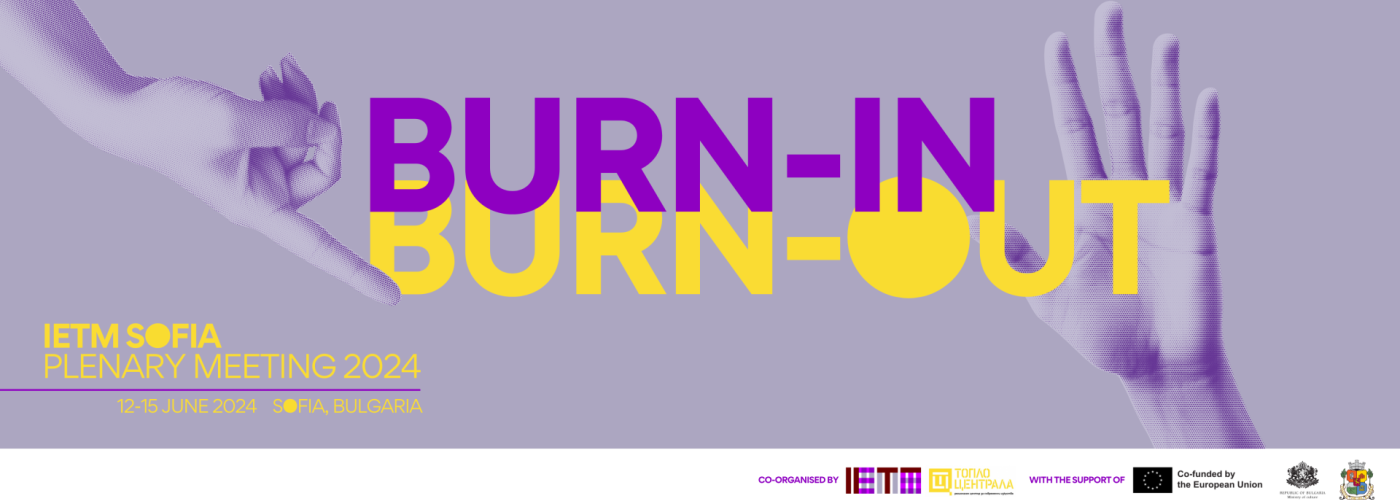Resources
Wednesday Opening and Keynote - Sensing Earth
Welcome by Ása Richardsdóttir (IETM), Vesselin Dimov (Toplocentrala), Vassil Terziev, (Mayor of Sofia) and Nayden Todorov (Minister of Culture). Keynote by Pascal Gielen.
Download the slides
Buy Pascal's book 'Sensing Earth - Quest Across a Heated Globe'
Friday Keynote - Sense of Place, Sense of Time
By Margarita Dorovska
Non-exhaustive list of performing arts organisations in Bulgaria
Ahead of the meeting, familiarise yourself with the Bulgarian performing arts scene by taking a look at this non-exhaustive list of performing arts organisations in Bulgaria.
For the session How do we make it work? A panel on working conditions and status of the artist
IETM: Fair Pay in the arts: the talk of the town or the elephant in the room?
Through this publication, our aim is to extract insights into the various roles that public funders, artists, unions, resource organisations, and institutions, can undertake in promoting and enacting fair pay practices. The report sheds light on possible gaps in existing frameworks, as well as areas outside of regulations and legal enforcement. Furthermore, the publication discusses the various dilemmas within the fair pay debate that hinder positive change. It presents several examples of successful policies and advocacy processes and addresses obstacles that may prevent the integration of fair practices into policies and everyday operations.
The platform is a unique EU-wide knowledge resource solely focused on working conditions in the cultural and creative sector. Providing concise and factual information, it will allow for comparative mappings and issue-based analysis.This will be the one-stop-shop resource to access concise and user-friendly information on key aspects of working conditions in the cultural sector in the 27 EU member states: regulatory status, social security, labour relations, learning and skills, and artistic freedom.
Creatives Unite: What do you mean by ‘status of the artist’?
In light of the challenges brought to the forefront by the pandemic, the concept of the 'status of the artist' spelled out by UNESCO back in 1980, has gained new importance. It framed many discussions and even made its way into the names of new laws. But what exactly do we mean by the 'status of the artist'? Who qualifies as an 'artist,' and what does this 'status' entail? Explore our comprehensive overview of frameworks addressing working conditions in the cultural sectors across EU countries.
Creatives Unite: Artists’ working conditions to remain a priority for the European Commission
Late last year, the European Parliament called for the creation of an EU framework addressing the social and professional situation of cultural workers. The European Commission has now formally responded to the resolution. So, what can we expect to happen in the coming years? While there is no commitment to immediately launch new legislation or policy initiatives, the current Commission will launch discussion on possible solutions and future actions.
The UNESCO 1980 Recommendation concerning the Status of the Artist has contributed to better responding to their specific needs. The fifth global consultation on the implementation of the Recommendation, conducted between July 2022 and January 2023, demonstrates the ongoing actions of UNESCO to protect the status of artists. The report highlights both positive trends and remaining challenges in relation to artists working conditions gathered through the consultation.

